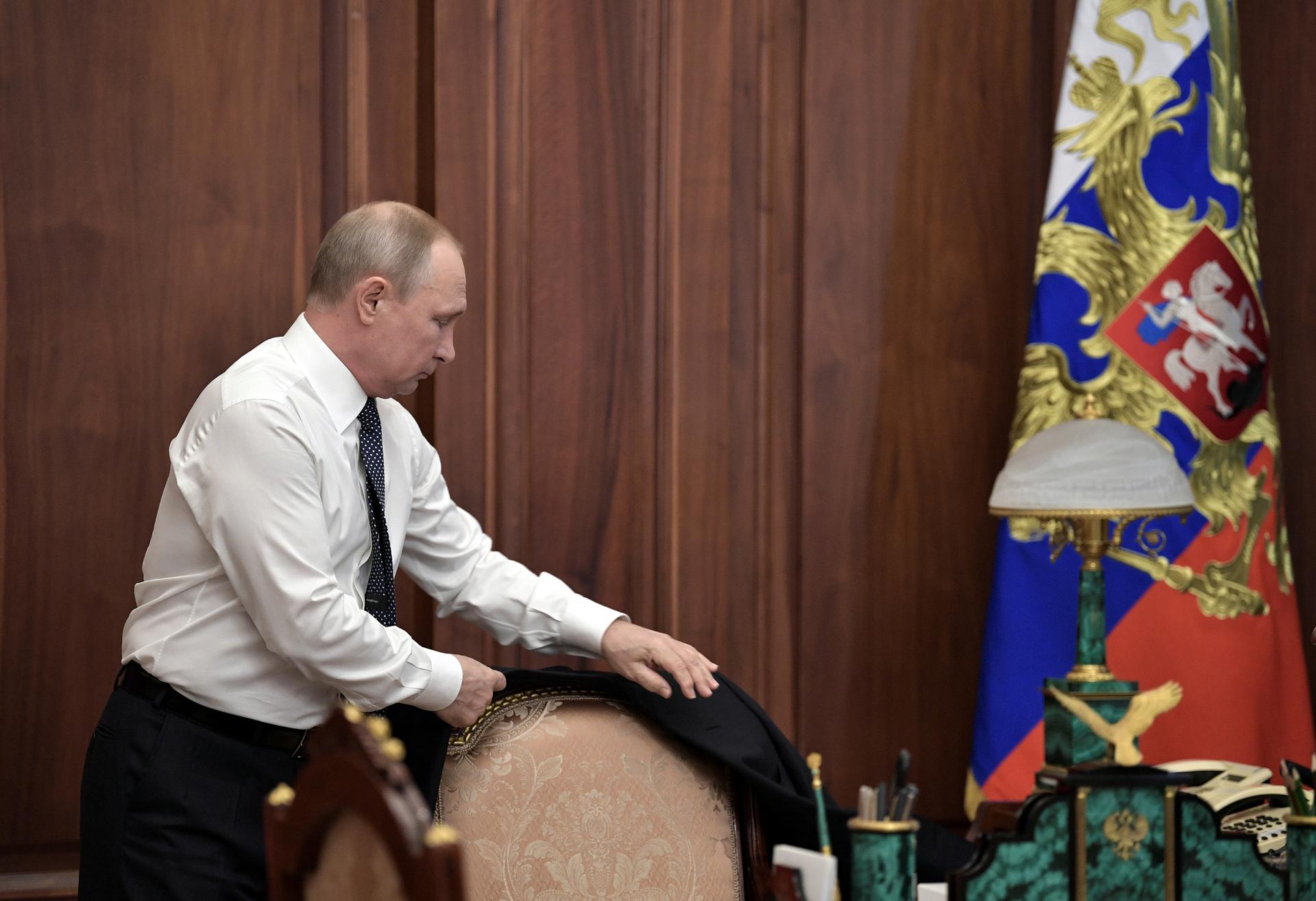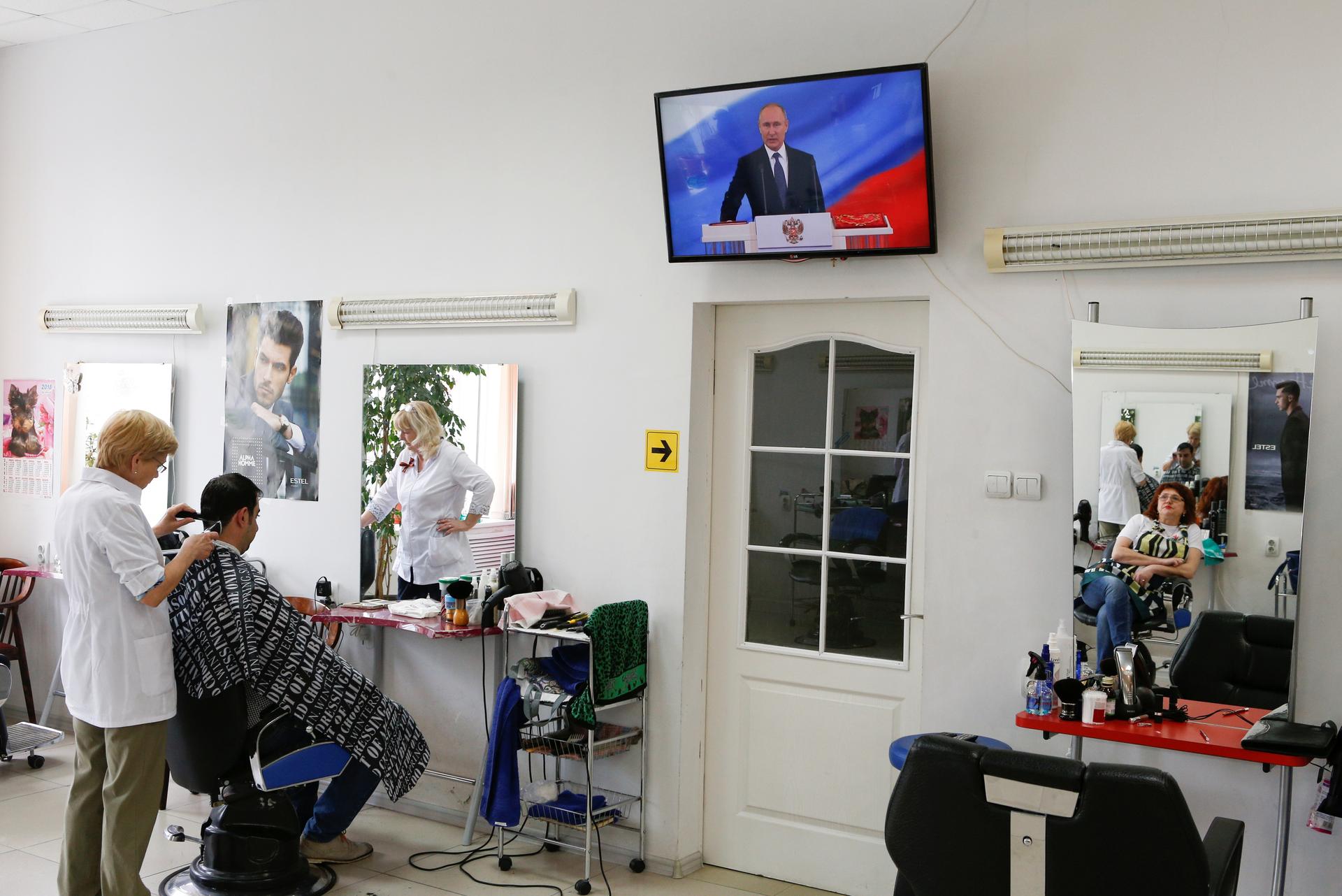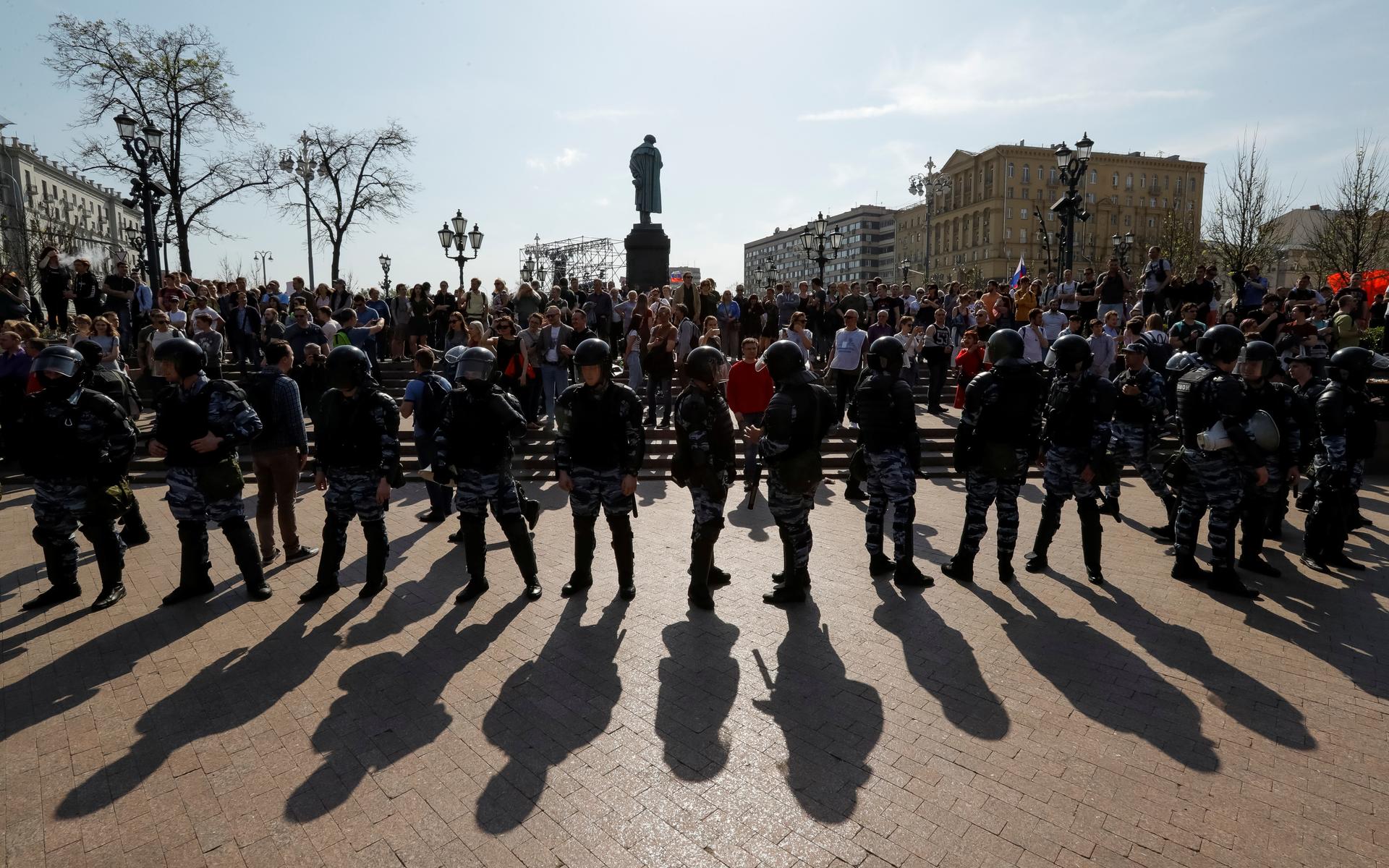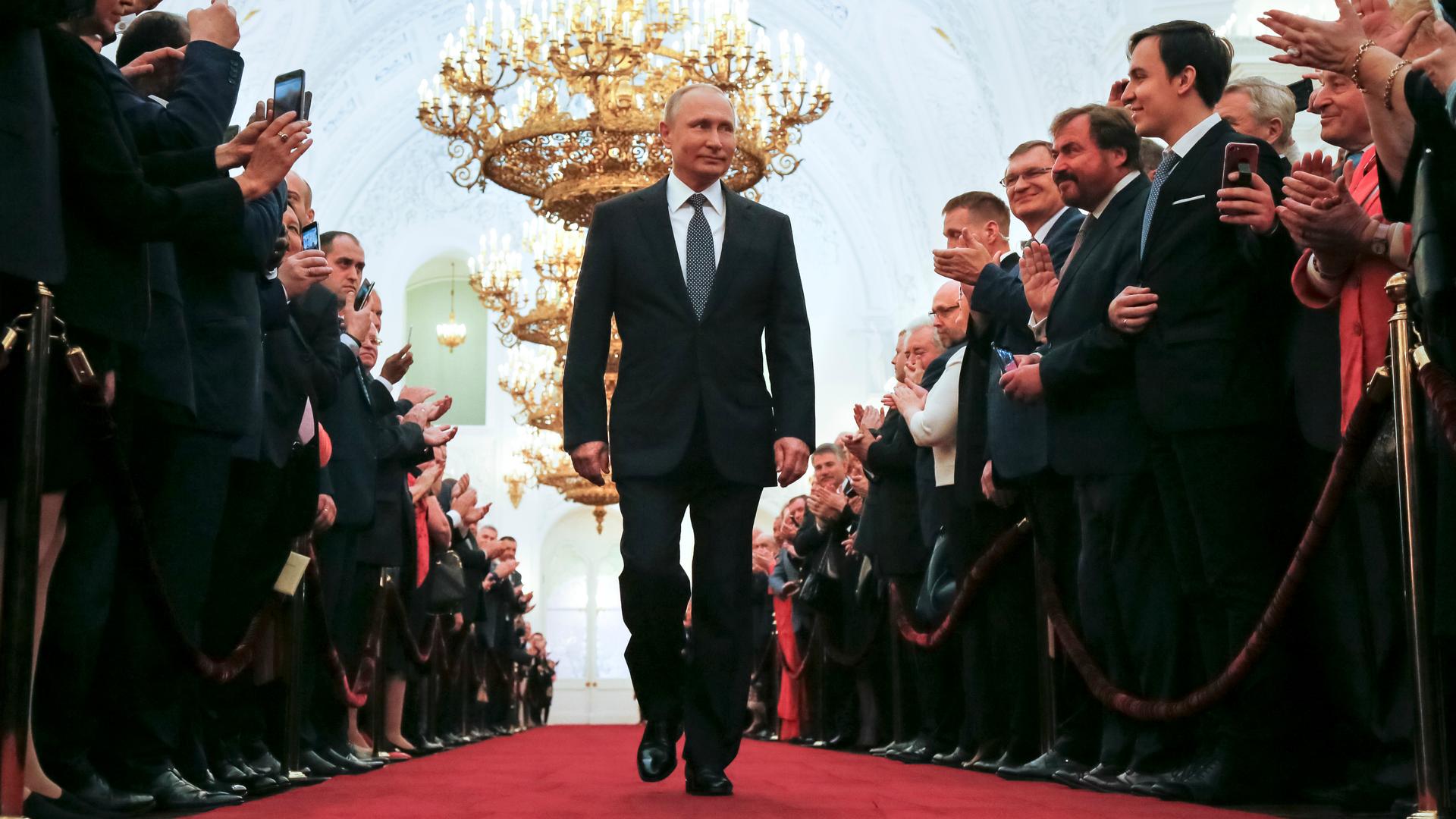Putin’s fourth inauguration was a Russia-first extravaganza
Russian President Vladimir Putin attends his fourth inauguration ceremony at the Kremlin in Moscow, Russia, May 7, 2018.
Russian President Vladimir Putin was sworn in to a fourth term in office on Monday, extending his 18-year rule amid promises of continuity in foreign policy and renewed efforts toward building prosperity at home.
In a swearing-in ceremony in the gilded Andreyevsky Hall of the Grand Kremlin Palace, Putin assured Russians that his rule had “revived pride” in the country. “As head of state I will do all I can to multiply the strength and prosperity of Russia,” said the Russian leader.
To a packed room of Russian political and cultural elite — and Hollywood actor Steven Seagal — Putin declared “the object of my life and my work will be to serve the people and the fatherland.”
Not the same old inauguration
Kremlin officials had hinted that this year’s ceremony would be more modest than his 2012 inauguration — which critics mocked over a decision to clear Moscow’s streets for the arrival of Putin’s motorcade. Televised images of Putin and his bodyguards racing alone through the streets of the capital seemed only to emphasize the Russian president had lost touch with the public.
In contrast, this year’s inauguration found the Russian leader diligently working at his desk when a call came notifying him the time had come to take the oath of office. It was almost as if the news came as a surprise.
Almost.

As Putin put on his jacket and made his way to the ceremony in a long, televised walk down the Kremlin corridors, viewers were treated to another surprise: Commentators noted that the president would now travel to official events in a notably Russian-built limousine rather than his traditional Mercedes.
It was a sign of the changing political times.
Cold War 2.0
Putin’s fourth term comes as Russia is engaged in a continued showdown with Western powers on numerous fronts, including alleged interference in the US and other Western elections, the poisoning of a former Russian spy in the UK, Russia’s annexation of the Crimean peninsula and a simmering proxy war in Ukraine, among others.
Related: Russia’s shadow armies: Soldiers, mercenaries or volunteers?
Equally vexing is the Kremlin’s ongoing military campaign in Syria, where Russia has clashed with the West over its support of the regime of President Bashar al-Assad despite charges of chemical weapons use against civilians. Amid growing public apathy to the military campaign at home, Putin has twice called for a withdrawal of Russian forces only to retreat on those promises.
Putin’s supporters credit the Russian leader with restoring Russia’s might on the world stage. Yet Russia’s actions have also triggered Western sanctions and a deep freeze in relations reminiscent of the grimmest days of the Cold War.
Once guns. Now butter.
In his speech, Putin largely skipped over his usual harangues against Western powers, instead focusing his comments on Russians’ concerns over an economy still struggling to emerge from recession, low world oil prices and the weight of sanctions.

“Now we will use all the possibilities we have, first of all for the resolution of internal, and most essential, tasks of development,” he said. “A new quality of life, well-being, security and health for the people, that is what is important today.”
“I’m deeply convinced that such a leap forward can only be secured with a free society that accepts all that is new and advanced,” he added.
Related: In Russia, a ‘ghost empire’ rises
Underscoring that message, Putin met with young volunteers from his election campaign immediately following the ceremony, posing for selfies and chatting with them about their ideas to aid Russia’s renewal. Less convincing was the first act of his new term: reappointing his unpopular Prime Minister Dmitry Medvedev to continue running the government.
‘Not a tsar to us’
Putin was re-elected in a landslide in March — securing just under 77 percent of the vote in a race independent monitors criticized over electoral machinations and lacking fair competition. The opposition leader Alexei Navalny — arguably Putin’s most dangerous opponent — was barred from the election over a dubious legal technicality.
Even with Putin’s overwhelming victory, the results suggested that demographics are dangerous terrain for the Kremlin. Putin voters skewed older. The loyalty of younger Russians, who have known Putin as president their whole lives, is far from clear.
Indeed, increasing numbers have flocked to Navalny’s social media-fueled campaigns against corruption and stagnation.

On Saturday, thousands of his supporters — most of them students — protested the prospect of another six years of Putin’s rule in rallies dubbed “He is Not a Tsar to Us” in dozens of cities across the country. About 1,600 people were arrested, with more 700 detained in Moscow alone.
Widely shared videos of aggressive policing — including the use of batons against peaceful protesters and the presence of whip-wielding Cossacks — seemed only to undermine Putin’s call for a progressive Russia full of possibilities and technological “breakthroughs.”
And the problem was this: The free society the Russian leader says he wants bares little resemblance to autocratic system his critics say he has constructed.
Charles Maynes reported from Moscow. For more on Putin’s Russia, check out Maynes’ recent series, “Ghost Empire.”
